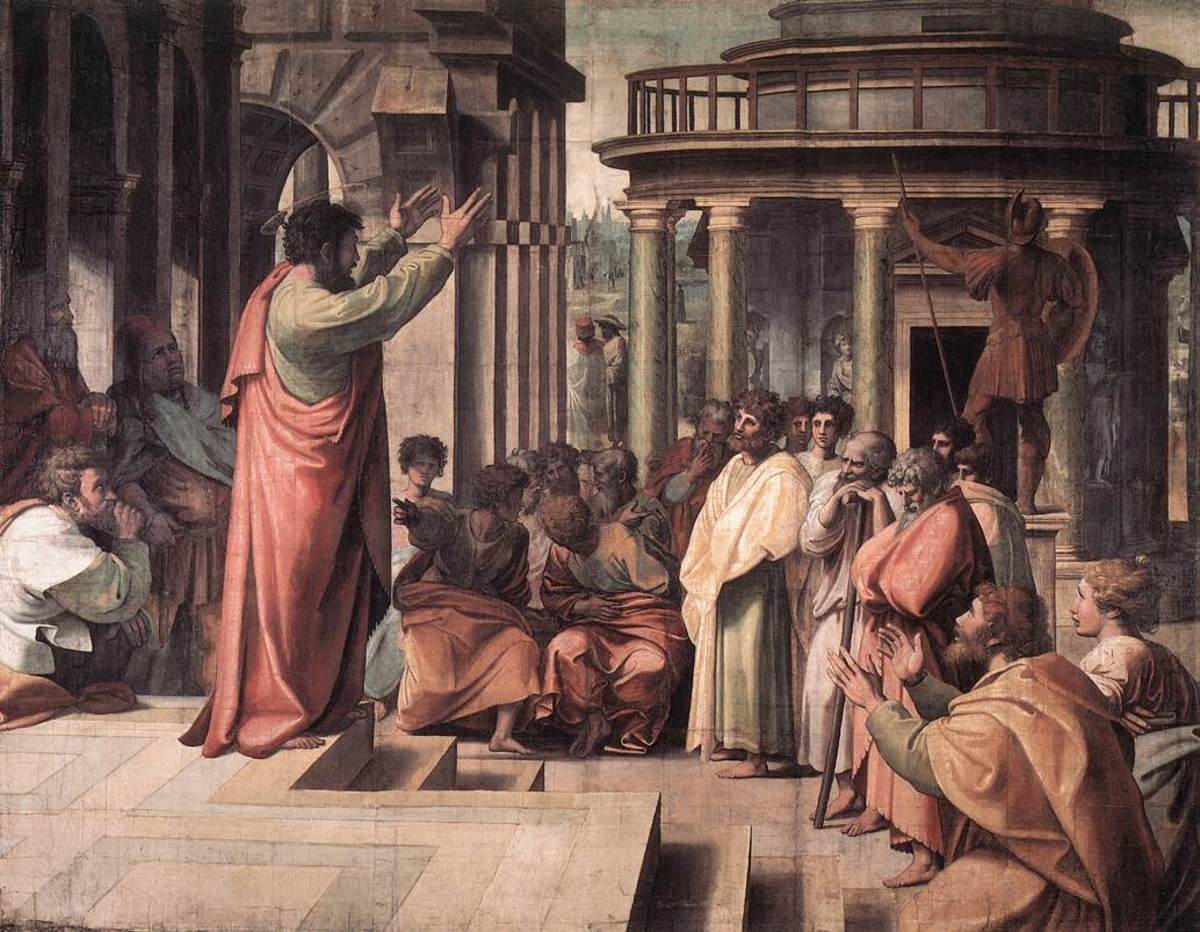Bible: What Does 2 Timothy 2 Teach Us About Discipleship?
The Apostle Paul

Three Analogies
Again addressing Timothy as his “son,” Paul encourages his reliance upon God’s grace in Christ to stand firm amid the opposition (v. 1).
He instructs his associate to entrust the truth of the gospel (and the accompanying doctrine he has shared with him) to men who have not only proven their faithfulness to Christ, but who can also effectively teach other men (v. 2).
[The apostle lays out the strategy to reach the world for Christ: multiplying discipleship.]
By means of three analogies—the good soldier, the honest athlete, and the hardworking farmer—Paul teaches Timothy valuable lessons about discipleship (vv. 3-7).
First, the good soldier, suffering through harsh conditions, nevertheless fights the enemy with a single-minded purpose, wishing to please his commander-in-chief; he does not spend undue time dealing with “the affairs of this life” (vv. 3-4).
Second, the honest athlete will not win the prize unless he obeys all the rules of the game (v. 5).
Third, the hardworking farmer must be the first one to eat what he has reaped (v. 6).
[You will succeed as a disciple only if your sole purpose is to please God.
You must take your direction from and obey the instruction manual, the Scriptures.
You must work hard and be willing to accept what God provides.]
Paul tells Timothy to ponder his words; he trusts that God will give his son spiritual understanding (v. 7)..
The Power of the Word of God

Crucified With Christ

Salvation
Can true believers ultimately repudiate God?
Another "Faithful Saying"
Desiring to communicate his motive for preaching the gospel, Paul reminds Timothy that he is suffering in prison (presumably as a worker of evil deeds) because he proclaims a message about his resurrected Messiah-King (v. 8).
Although restricted physically, the apostle knows that God’s message has no such limitation (v. 9).
Because the Word can save people regardless of the status of its messenger, Paul is willing to put up with all kinds of mistreatment only if he could win to salvation those whom God chose to receive eternal glory in Christ (v. 10).
Concluding this section, Paul inserts another “faithful saying” that encapsulates several precious truths (v. 11a; cf. 1 Tim. 1:15; 3:1; 4:9).
First, he points out that since believers “positionally” died with Christ on the cross, the Lord will one day physically raise them from the dead as He was raised (v. 11b).
Second, Paul appears to emphasize that suffering hardship for Christ’s sake qualifies believers to administer the kingdom with Him (v. 12a; cf. Rom. 8:17).
Third, the apostle avers that Jesus will reject people who deny Him (v. 12b).
Fourth, Paul affirms that Jesus will continue to rescue faithless Christians, for He is a God who is faithful to His promises and eternally consistent in His character (v. 13).
[How do the third and fourth conditional statements relate to one another?
Being faithless is not the same thing as denying Him; faithlessness stems from spiritual weakness, while denial suggests a strong disapproval of God Himself.
Peter denied Christ three times, but Jesus restored him.
Can Christians ultimately repudiate God?
If not, then why does Paul use the word “we”?
How would God deny Christians?]
Study the Scriptures

False Teaching Needs Refutation
view quiz statisticsGentle Correction of False Teachers Through Knowledge of the Word
Paul urges Timothy to command certain false teachers not to cause tension and strife among believers with their profitless disagreements over the meanings of words (v. 14; cf. 1 Tim. 6:4-5).
To prepare himself for these confrontations, Timothy should study the Scriptures so diligently that God would approve of his effort; consequently, Timothy would not be ashamed of his interpretations before his opponents (v. 15).
The apostle instructs him to turn away from “profane and idle babblings” (“worldly and empty chatter,” NASB), so that he does not get himself involved with more ungodly nonsense (v. 16).
For example, Paul warns of the cancerous spread of the heretical doctrine of Hymenaeus and Philetus, who teach a false view of the resurrection.
Because of their instruction, the faith of some believers suffers (vv. 17-18; cf. 1 Tim. 1:20).
[Ryrie suggests that the former teacher espoused Gnostic beliefs that considered the resurrection a mere “acquaintance with truth” (New Testament Study Bible, 388).]
The apostle relates that God will not permit the error of false teachers to prevent the salvation of His elect.
Not only has He known His people intimately from eternity past, but He has also placed within those who truly belong to Him the ability to obey His commandment to keep away from wickedness (v. 19).
The Place Where the Local Church Worships

The Local Church
Paul compares a local church to a great house that contains different qualities of vessels; those made for honor he characterizes as gold and silver (true believers), and those for dishonor he describes as wood and clay (v. 20).
Dishonorable vessels (false disciples) need not remain in this ignominious category; Paul writes that they may cleanse themselves and become vessels for honor (v. 21a).
In other words, people like the heretics mentioned above may repent of their error, and become instruments useful for God’s purposes (“prepared for every good work”) [v. 21b].
[These heretics are not Christians who "get right with God," but unbelievers who turn from their sin and believe the gospel.
Otherwise, one would have to argue that true believers can spread false doctrine about Christ’s resurrection.]
Paul reiterates instruction to Timothy about the need to escape from “youthful lusts” and to seek godly virtues with pure companions (v. 22; cf. 1 Tim. 6:11).
[Was Timothy having public difficulties in this area?]
He also repeats the need for him to stay out of arguments with stupid fools in order to keep himself away from trouble (v. 23).
To bolster his exhortation, Paul then lays out the proper behavior and attitude Timothy should exemplify as “a servant of the Lord.”
Instead of quarreling with the heretics (which he was apparently doing), Timothy should show a gentle spirit toward them, correcting them patiently and humbly with the hope that God might enable them to realize their error, change their minds concerning it, come to know the truth about Christ, and thereby escape from Satan’s prison (vv. 24-26).
© 2014 glynch1







